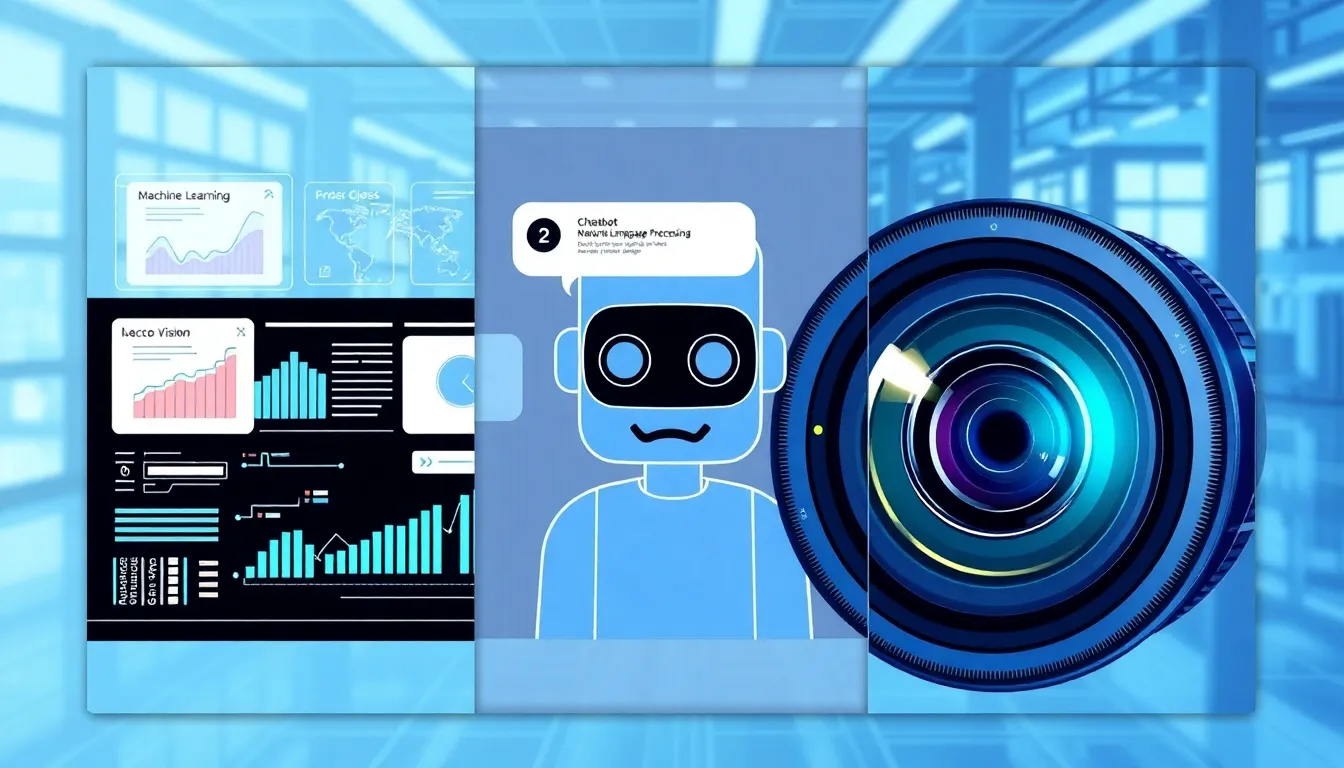In a world where technology evolves faster than a toddler on a sugar rush, artificial intelligence APIs are the secret sauce developers crave. These magical gateways transform mundane applications into smart, intuitive powerhouses that can predict user needs, automate tasks, and even crack a joke or two. Who knew that integrating AI could be as easy as ordering takeout?
Table of Contents
ToggleUnderstanding Artificial Intelligence APIs
Artificial intelligence APIs simplify the integration of intelligent features in applications. Developers leverage these tools to enhance user experiences and streamline tasks.
Definition of Artificial Intelligence APIs
Artificial intelligence APIs are predefined protocols that allow applications to utilize AI functionalities. These APIs provide access to machine learning models, natural language processing, and computer vision capabilities, enabling developers to embed complex features without extensive knowledge of AI. Numerous popular platforms, such as Google Cloud, IBM Watson, and Microsoft Azure, offer comprehensive AI APIs. By tapping into these resources, developers accelerate the implementation of advanced technologies in their projects.
Importance of APIs in AI Development
APIs play a crucial role in artificial intelligence development. They facilitate the use of AI tools without requiring deep expertise in AI algorithms. Many organizations find that APIs reduce the learning curve associated with implementing AI solutions. Cost savings emerge from the ability to utilize existing models rather than develop new ones from scratch. Driving innovation also becomes easier as developers experiment with different AI functionalities. As demand for intelligent applications grows, leveraging APIs becomes essential for maintaining competitive advantages in the market.
Types of Artificial Intelligence APIs

Artificial intelligence APIs fall into several distinct categories, each serving unique purposes for developers and businesses. Understanding these types enhances the ability to select the right functionality for specific applications.
Machine Learning APIs
Machine learning APIs simplify the integration of predictive analytics into applications. These APIs allow developers to access various machine learning models without needing in-depth expertise in the field. Popular options include Google Cloud AI and Amazon SageMaker, offering features like training custom models or using pre-trained ones for tasks such as recommendation systems and fraud detection. A key advantage lies in the ability to process large datasets quickly, improving the efficiency of applications.
Natural Language Processing APIs
Natural language processing APIs facilitate the interaction between computers and human language. By employing these APIs, developers can implement functionalities such as sentiment analysis, language translation, and chatbots. Services offered by platforms like IBM Watson and Microsoft Azure provide robust tools for understanding and generating text-based interactions. Applications in customer service and content moderation leverage these capabilities, enhancing user experiences by making them more intuitive and responsive.
Computer Vision APIs
Computer vision APIs enable applications to interpret and understand visual information from the world. These APIs can identify objects, analyze images, and even extract text from photos. With services from Google Cloud Vision and Amazon Rekognition, developers can build features that include facial recognition and image labeling. Such capabilities find use in security, retail, and healthcare, automating tasks and improving operational efficiency.
Benefits of Using Artificial Intelligence APIs
Artificial intelligence APIs provide numerous advantages for developers and businesses seeking to enhance their applications. These benefits include accelerated development, cost-effectiveness, and access to advanced technology.
Accelerated Development
Rapid development occurs through the use of AI APIs. Developers streamline the integration process, focusing on core functionalities instead of building complex AI systems from scratch. With pre-built models available, organizations implement features such as chatbots and recommendation engines quickly. AI APIs boost productivity by providing easy access to cutting-edge tools, allowing teams to innovate without delays. Immediate benefits appear as products reach the market faster and customer needs are met promptly.
Cost-Effectiveness
Cost-effectiveness represents a significant advantage of AI APIs. Utilizing existing models reduces expenses associated with data collection and model training. Organizations save resources while leveraging advanced AI capabilities, ultimately lowering the overall investment required for development. The affordability of these APIs fosters experimentation, enabling businesses to explore various use cases without incurring high costs. Companies harness the power of artificial intelligence without committing substantial budgets, optimizing their operational expenses.
Access to Advanced Technology
Access to advanced technology becomes possible through artificial intelligence APIs. Industry leaders such as Google Cloud, IBM Watson, and Microsoft Azure provide sophisticated tools that small businesses and startups could not develop independently. Developers tap into machine learning algorithms and natural language processing capabilities that enhance applications significantly. Gaining access to these technologies allows companies to compete effectively in their respective markets. Integrating AI features enhances user experiences and improves overall functionality within applications.
Popular Artificial Intelligence APIs
Artificial intelligence APIs empower developers to create innovative applications with sophisticated capabilities. Several platforms lead the way in providing robust AI services.
Google Cloud AI
Google Cloud AI offers a suite of machine learning services. Its tools assist developers in building AI models tailored to their needs. With features like AutoML, users can train custom models without deep expertise in machine learning. Natural Language API provides insights into text analysis, allowing for tasks such as entity recognition and sentiment analysis. Cloud Vision API enables image processing, supporting applications in areas like facial recognition and object detection. Google’s infrastructure ensures scalability, making it a preferred choice for enterprises needing reliable performance.
IBM Watson
IBM Watson delivers advanced AI tools designed for various applications. Developers benefit from Watson Assistant, which creates conversational interfaces for chatbots and virtual agents. Natural Language Understanding can analyze user’s intent and sentiment, enhancing customer interactions. The Watson Discovery service enables efficient data management, sifting through large datasets to extract valuable insights. Pairing these services encourages businesses to harness AI for competitive advantage. Flexibility in deployment further makes IBM Watson suitable for companies tackling unique challenges across industries.
Microsoft Azure AI
Microsoft Azure AI enhances applications with powerful AI capabilities seamlessly. With Azure Cognitive Services, developers access functionalities like speech recognition and translation services. Text Analytics API assists in extracting key phrases and sentiment from documents, improving content understanding. Custom Vision API allows for tailored image classifiers, catering to specific business needs. Azure’s scalability supports applications of any size, ensuring robust performance. Integrating these services accelerates development timelines, helping businesses innovate while focusing on core objectives.
Artificial intelligence APIs are revolutionizing the way developers create and enhance applications. By providing easy access to powerful AI capabilities, these APIs empower businesses to innovate and stay competitive in a rapidly evolving market. The ability to integrate advanced features without extensive expertise in AI allows developers to focus on delivering exceptional user experiences.
As organizations increasingly recognize the benefits of AI, leveraging these APIs becomes essential for achieving operational efficiency and driving growth. The future of application development lies in embracing these technologies, ensuring that businesses can adapt to changing demands and continue to thrive in the digital landscape.



